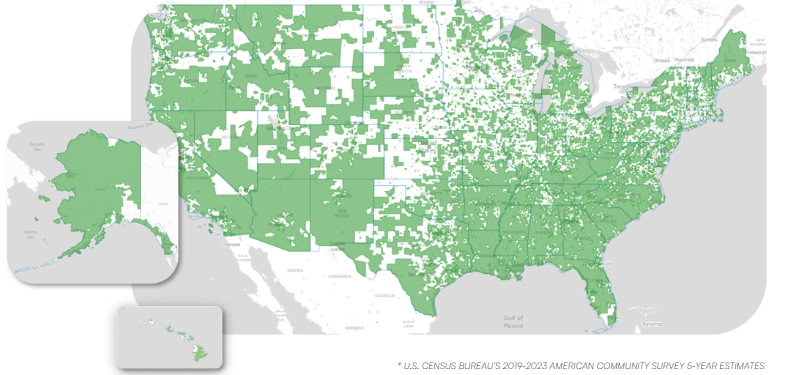Critical Issues Facing Credit Unions: Key Takeaways from Industry Leaders
As we approach the 2026 midterm elections, credit unions face significant challenges that will shape the industry's future. Our recent virtual town hall brought together leaders from across the credit union movement to discuss advocacy priorities, regulatory concerns, and effective engagement strategies. Here are the essential insights from this critical conversation.


The credit union movement has achieved notable victories in 2025, particularly regarding tax exemption status. When tax reform legislation appeared on the horizon, credit unions collectively delivered over 800,000 contacts to Capitol Hill, demonstrating the power of unified advocacy. This grassroots effort proved decisive in protecting the not-for-profit charter that enables credit unions to serve their communities effectively.
Beyond tax exemption, credit unions secured additional wins:
- The Genius Act, allowing credit unions to issue stable coins and custody digital assets
- Congressional action overruling the Consumer Financial Protection Bureau's (CFPB) overdraft rule
- Withdrawal of potentially harmful 1071 and 1033 rulemakings
These successes underscore what happens when credit unions mobilize their members and speak with a unified voice. However, challenges remain, particularly as banking interests attempt to divide credit unions between large and small institutions.
Government Shutdown: Immediate and Long-Term Impacts
The current government shutdown has created multiple layers of impact on credit unions:
- Member hardship: Government employee credit unions are supporting members who aren't receiving paychecks through paycheck advance loans and zero-percent interest programs
- Operational disruptions: While the National Credit Union Administration (NCUA) remains operational as an independent agency, many services credit unions rely on are unavailable
- Program threats: The Community Development Financial Institutions (CDFI) fund faces potential staff reductions that could effectively shut down operations
The shutdown has empowered certain administration officials to target programs like the CDFI fund that are vital to credit unions' ability to serve underserved communities. Credit unions and their advocates have responded swiftly, securing over 100 Republican lawmakers to sign a letter opposing cuts to the CDFI fund.
Looking Ahead: The 2026 Midterm Landscape
As we move toward the 2026 midterms, several key issues demand vigilance:
Legislative Priorities
Credit unions must remain alert to perennial threats like the Credit Card Competition Act while pursuing opportunities for charter modernization and regulatory improvement. The Federal Credit Union Act hasn't seen meaningful updates since 1998, creating a window for progress on loan maturities, investment authorities, and business lending.
Digital Evolution
Financial services are evolving rapidly with digital assets and cryptocurrency. Legislation moving through Congress could dramatically reshape the competitive landscape. Credit unions must ensure they have a preserved role while protecting against an unlevel playing field where crypto companies operate without the capital requirements and regulations that depositories follow.
Open Banking
The CFPB's rewrite of the 1033 open banking rule could fundamentally change how consumers access and share their financial data. This presents both risks and opportunities for credit unions competing against fintech companies with "slick" consumer interfaces.
Economic Uncertainties
Market conditions could significantly influence the political environment leading into the midterms. Potential liquidity issues affecting banks could bring financial institutions into campaign conversations, making it essential for credit unions to differentiate themselves from large banks if economic conditions deteriorate.
Advocacy Strategies That Work
Our panel highlighted several approaches that prove effective in advancing credit union priorities:
Localize and Humanize Issues
Despite changes in the media ecosystem, localizing and humanizing issues remains powerful. Stories about how credit unions provide access to credit that wouldn't be available from large banks resonate across the political spectrum.
Engage Local Stakeholders
Credit union CEOs and leaders who take time to meet with lawmakers make a measurable difference. While professional advocates play an important role, legislators know that practitioners speaking about real impacts carry special weight.
Build Bipartisan Relationships
The political landscape is shifting rapidly, with many new voices in Congress. Credit unions should cultivate relationships on both sides of the aisle and be prepared to educate newcomers about the credit union difference.
Looking Toward the 2026 Elections
Political analysts see different paths for the House and Senate in 2026:
- The Senate is likely to remain under Republican control based on the current electoral map
- The House appears more competitive, with Democrats having a slight edge
- Redistricting efforts in California, Texas, and Virginia could significantly impact House outcomes
- Economic conditions and voter priorities will ultimately shape the results
Final Thoughts: Unity is Strength
The credit union movement's success depends on communication, collaboration, and active engagement. When credit unions work together by sharing resources, aligning messages, and activating their 144 million members then they create an advocacy force that lawmakers cannot ignore.
As we prepare for 2026, the industry must remain vigilant against threats while pursuing strategic opportunities for modernization. By maintaining a unified voice that transcends size differences, credit unions can effectively advocate for policies that strengthen their ability to serve members and communities.
The credit union difference isn't just a tagline; it's a powerful story that resonates with lawmakers and consumers alike. By telling that story consistently and compellingly, the movement can continue building on its recent successes while preparing for the challenges ahead.
Advocacy







.png)













